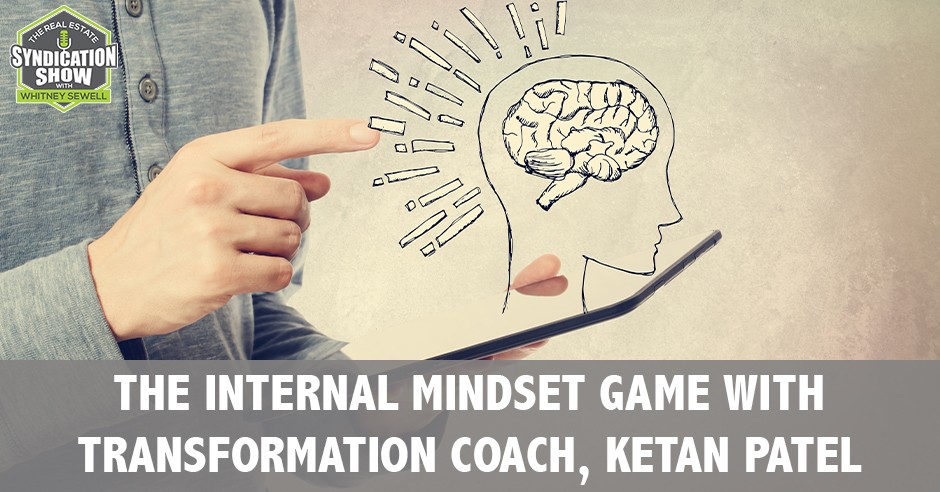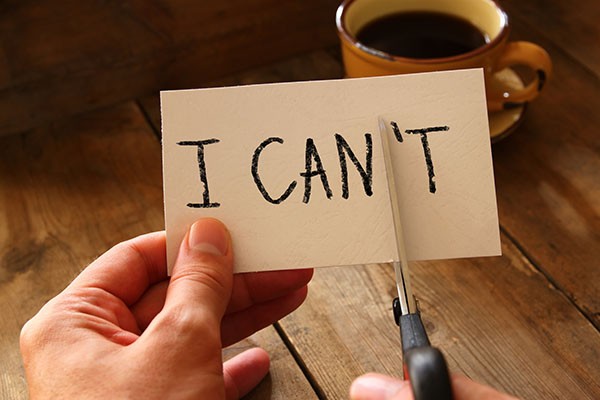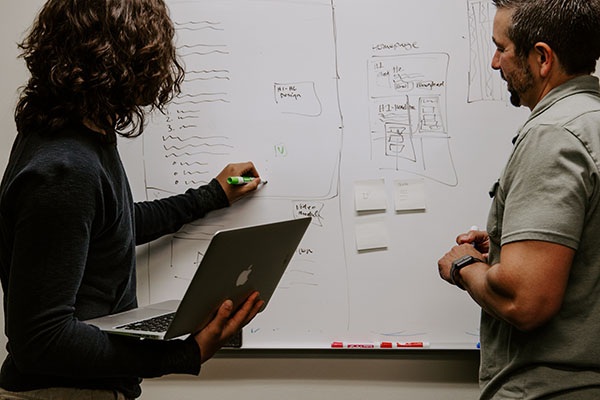
Listen to the podcast here:
50% of our mindset we model from other people we associate with. The other 50% is unique to you and you must figure that out. Today, Ketan Patel, Transformation Coach, helps us to understand how we begin this process, how he helps clients create successful habits, and why it is important to know what is driving you. I can personally relate to this. It was when I started to understand the importance of “mindset” that I took steps to improve it and when my business started to grow and improve.
—
Watch the episode here:
The Internal Mindset Game with Transformation Coach Ketan Patel
Our guest is Ketan Patel. Thanks for being on the show, Ketan.
Thank you, Whitney. I’m very grateful to be on the show.
I’m happy to have you on. Ketan is a transformation coach that helps motivated individuals create breakthroughs and unlock their potential. He has mastered the art of transformation by learning from people like Tony Robbins, Wim Hof, Dr. Deepak Chopra and Dr. Joe Dispenza. His unique program will give you the clarity and confidence you need to achieve your goals faster and increase your self-awareness. His achievements include earning an accelerated doctor, a pharmacy degree, building a multimillion-dollar real estate portfolio by starting from $8,000, operating successful retail and services businesses, and climbing a mountain wearing only shorts in twenty-degree weather. Thanks again for being on the show. Give the audience a little bit about who you are, your background and maybe let’s talk about the real estate business that you’re doing. Let’s also jump into your coaching and how you’re helping individuals in this business as well.
I’m from Boston and my journey started as a pharmacist. I was always driven towards entrepreneurship and business. I shifted into real estate from syndication to managing a rental portfolio, a small-scale development. From there, I transitioned into a coach because in every step of the way, you realize to shift into your higher potential from the experiences that you get. I realized that success in the real estate field or any field has a lot to do with your self-awareness as an individual. What kind of blocks do you have? What’s driving and motivating you? The more I uncovered these factors in myself in the real estate business, the more I could translate it into a success, whether it’s raising more capital or managing a portfolio better or any of those things.
I want to dive in a little bit more about these things you’re talking about you uncovered in yourself. I’m sure the audience and myself are dealing with some of the same things. Help us walk through some of that. Get us start a little bit by what was it that you uncovered in yourself? Maybe a few things that we could talk about that most of the audience are probably struggling with as well when we’re going through this real estate journey and building our business as you have.
[bctt tweet=”Success in any field has a lot to do with your self-awareness as an individual.” username=””]
One thing we could talk about is limiting beliefs. Limiting beliefs are a huge roadblock to whatever you are trying to do in real estate, either finding a deal or finding capital or somehow pulling through a transaction. Oftentimes, they are not reasonable. They are running like a background app consuming power. Let’s talk about some limiting beliefs that you could have around raising capital. On the surface you might be asking yourself, “I’m promoting. I have blogs. I’m doing X, Y, Z. I’m going to meetups. Why am I not raising as much capital?” If you sit down with yourself and if you are aware, you will have something of the tune of it could be anything. To give you my example, I was thinking years ago that I’m bringing the people into the deal and I’m taking advantage of them because they are only getting 8% preferred return. Maybe they are looking for more. That was my belief. Yours might have a different flavor but eventually, it would block you to go out there and connect with the individual. If you have a negative limiting belief or it could be something like, “I’m new to the business. I don’t have as much experience. What if this transaction fails? These are my friends and family. I would feel uncomfortable in my social circle and how would that impact.” A lot of people who are starting in the game feel that limiting belief at play as well.
I can relate to that, especially getting started in this business and trying to raise capital. We all feel like you’re not sure about yourself. You don’t have much confidence when we first start talking to investors. I know there are people out there that feel the same way. Help us to get past that a little bit as far as how we change that thinking or that limiting belief and gain more confidence. You mentioned sit down with yourself. What does that look like and how do we do that?
The first step would be to take an inventory of what those actual limiting beliefs are. Sometimes for everybody, it’s a different process. You want to pick an environment where you are creative and where you could block off an hour and sit down with yourself. It could be a park, it could be a cafe, wherever works best for you. If you are already aware of them, you jot them down. If not, you try to ask yourself the question, “What if there’s no reason I could fail in this particular investment or this is my life’s work or this is a very important thing I need to figure? What are the deep-down blocks?” You put a list. For example, “I’m taking advantage of the investors.” That’s one limiting belief that we could use. Step two is we are going to think of all the reference experiences in the past as well. The way this works is it’s like a table supported by legs. It’s the same way your limiting belief would be supported by some reference experiences. Try to see if you could find any reference experience from the past. Why are you feeling you are taking advantage? Have you done something in the past in real estate or not where you felt that it didn’t work out and somehow you took a meaning that you took advantage of the investors? If you could think of some reference experiences, you could list those down as well. If not, it’s okay.
The second step you would be doing is think of the exact polar opposite of your limiting beliefs. If your limiting belief is, “I’m taking advantage of them,” change it to, “I’m giving advantage to them.” Consciously thinking of this is not going to sink it into your subconscious. We all know that. You need to create a list of good reference experiences that would sink this in over the next period of a week or a month. In my case, I’m giving advantage to them and my reference experiences were I’m educating them on different investments for free. I’m not charging them money or anything like that. I’m helping them break their fears related to investing and take a leap with me, which can potentially change their life as well.
Who am I to decide what 1%, 8% or 10% investment could mean to them? Before, I was thinking that 8% seems very low or 9% seems a little low but that’s not my choice. I’m giving them an advantage. I’m giving them passive income. I’m helping them create income, being creative, and providing them solutions. It would be different for everybody. The more reference experiences you could come in with, you write it all down and you anchor it to a new limiting belief. Anytime you have an investor call or you are going to a meeting, you quickly review it before that. Your brain gets a quick rush of the new neural connections and before you know it, this would be your routine.

We’re changing our routine, which I’m sure is a good thing if we have these limiting beliefs. I can see too that picking a creative environment or somewhere else that you’re not sitting in the office and you’re not sitting where your computer or your phone is and all these distractions that we live with everyday somehow. You’ve mentioned thinking of references in the past that support this. That’s interesting. Think about why do I have this limiting belief and then think of the polar opposite. It’s a big mindset shift. It’s a mindset change. Help us to change that mindset or have a successful mindset. How do you do that? How do you coach people in doing that? For myself, mindset change was instrumental in getting my real estate business started and making it happen. How do you coach others to do that? Maybe some common things that people are struggling with.
When we talk about success psychology or success mindset, in my opinion it boils down to two things. The first part is the 50% that we learn or model from people. We could watch a YouTube video. We could see what has worked for somebody else that has a morning ritual or do X, Y, Z. Those are all good things for us to learn. The other 50% is very unique to you that unfortunately, nobody could teach it to you. I cannot figure that out either for yourself. There’s a process that I have created that coaches use that would get you in touch with your deeper self for you to come up with those unique things that are driving you. That’s the other part, which gets very interesting because it’s all for you and it’s like you’re on your own journey.
To talk about it, there are a lot of tools that I use. I’ve been trained by Tony Robbins with his Six Human Needs psychology. Let’s use one of the examples with the client. Let’s say you’re a real estate syndicator. At the end of the day, you’re trying to make whatever your number is, $5 million or $50 million or $100 million. The driving force behind that is you are trying to get some kind of feeling at the end of it. Either when you will be successful, you want to feel significant to yourself, family or community. Maybe you have insecurity towards financing where you feel, “If I don’t have X amount of money, life’s going to be difficult. If I have X amount of money, I will have freedom.”
The common freedom thing is if you’re earning money, you don’t need to worry about working another day. You could be however you want to spend your time, etc. These are not good or bad things, but everybody’s driven by something else. We have to figure out what you are driven for. Are you trying to get significance? Is that your number one thing where you don’t care about a deeper meaning for your work or purpose? It’s all about somehow let me make this work and this is deeper. It’s not going to come out right away. Sometimes it might or it could be the freedom or it could be the security. Once we find out what your blueprint is, then you could shift it and be like, “This is good but I don’t need to get significance from it. I don’t need to raise X amount of dollars or get X amount of apartment complex under the belt just to prove it to myself. I’m already worthy of myself. I like doing it and I want to do it, but it’s totally disconnected.” This is a simple tool. There are a lot of things that step by step unravel and get your blueprint out so you could tweak it to then change your mindset. Couple it with other things that you already know and get forward momentum.
Initially, you talked about the 50% we model from other people. I can see the importance of who you surround yourself with. Is there an example or ways that you’ve been intentional about as you’re going through this mindset change and you learned these tactics, that maybe the people you’re hanging around changed?
[bctt tweet=”Do the exact polar opposite of your limiting beliefs.” username=””]
It makes a huge difference. There have been a lot of studies where they say that the six people that you are hanging out with are your average or your bank account balance is their average, etc. On a day-to-day basis, the information you listen to, whether it’s a podcast, or read to, or people you talk to, that gives you raw materials for your brain to work on and come out with new materials. If you are getting the same raw materials by hanging with the same people, you are going to get the same thoughts, which will then trigger the same feelings, which would keep you in the same action loop and getting the same results. It will go round and round. As soon as you start changing that circle, maybe start reading new kinds of books or hanging out with new people, listening to the interviews, going to some events, any of those things. It would be hard to measure in the beginning, but slowly it will create a change in you as well.
That 50% is unique to us. You mentioned you’re looking for that feeling after you achieve whatever this is you’re looking for. It takes some time. You’re going to have to devote some time to think about, “What is it I’m trying to accomplish here?” Hopefully, you already have some goals, “What is this feeling I’m looking for?” After we’ve discovered that and at the end, we’ve figured out what it is we’re looking to achieve, “This is why we’re doing this because we want financial freedom,” or whatever it is. Walk me through that as far as how that helps me change my mindset.
To give you an example, we had a client that after a good amount of work, we discovered that for him, it is important to be in real estate and be successful because his father was very successful. He had ingrained, “For me, it’s important to be successful in real estate,” because that’s how he got it. That significance part was very important in front of his family and the community to get that. Once you figure that out, then you ask yourself is that true of what you are trying to seek? For example, you are trying to get financial freedom, but what if you are already making a decent living? You already have that freedom. You don’t have the clarity on what gives you joy. What is the purpose of your life? What is the meaning? Instead of that, the shortcut is, “Let me try to make more money. That will give me freedom.” Instead of asking yourself and understanding what makes you happy? What would you like to do? How would you like to support others and all of those things?
Once you uncover those things, then you ask yourself, “Does that make sense?” Is it that important to you? Can you change the order of it like, “I want to do it, but I want to do it so it would help me grow as a person. I’m terrified of raising capital, but I know that the value is not in getting, it’s in becoming somebody else?” You know by the time you raise capital or do a syndication deal. Why don’t we approach it as, “I would be a completely different person because I have faced my fears or I have gone through so many challenges?”
You change the mindset like that and also you change the order where, “For me, making a little more money is very important. I don’t care about significance. Why am I seeking this significance? Are they parts of myself that I haven’t fully accepted? I am not at peace and I’m thinking that this would get me going for it.” It’s taking inventory of these things and thinking of these questions to then rewire this thing. That’s the other 50%. These were some examples from some clients, but everybody’s situation is unique. You would take actions in a very different way because your primary drives and your motives have changed.

Maybe the audience can’t go off and figure this out now. We’re thinking about these things. Maybe we’re going to plan some time the next weekend or something like that. We can get started on some of this. What are some things they could implement? Maybe a daily routine suggestion that you have that will help us to change our mindset or achieve more success as an entrepreneur.
The biggest thing is that most people know their phone’s operating system but we don’t take the time to understand our operating system. The number one thing I would suggest anybody is to schedule a one-hour or two-hour window every single week in their calendar where they are unreachable. They go to their favorite cafe, a park, their office or anywhere they feel super motivated. They shut all electronic devices off. Take a pen and paper or something to take notes with and then start asking these questions and think about it. Make it a process where every single week you do it. What would happen is before you know it, two weeks, four weeks, eight weeks have gone by and you would have come up with so much material about yourself that you could then ask deeper questions and explore it. The key to it is simply scheduling that two-hour block because we are so busy running our businesses and our life that we never take the time to spend an interview of ourselves. That one thing could start things going on.
We’re always connected, whether we’re sitting at the desk or on the computer, the notifications are like mad and your phone is always next to you. I tried to get in the habit of at least putting it on airplane mode at times. It’s not randomly notifying me of something all the time and distracting me. It’s difficult and we get in that habit and we’re always on it. We have that addiction. We’re addicted to social media. Ketan, I’d like to hear a little bit about your real estate business. Tell me a little bit about what you’re doing in real estate.
I’m raising capital for a multifamily deal. I am also doing a couple of conversions from ranches into a two-family in an affluent neighborhood where you get more dollar per square foot. We buy these ranches at a low dollar per square foot. We do our value-add construction to then sell it into their semi-luxury homes. I’m working on those projects. I like to be somewhat active as well in real estate sites. As a coach, I’m in touch with what’s happening with the day-to-day and I have something to work on as well.
What’s been the hardest part of your syndication journey? I know you mentioned you’re raising capital. What’s been some of the hardest things you’ve had to work through in growing this business?
[bctt tweet=”Everybody’s situation is unique. We take actions in different ways because our primary drives and motives change.” username=””]
The hardest thing would be the mindset from one or another angle. When you were starting, it was all about thinking, “What if this doesn’t work? What if the deal doesn’t work out? How would it work out in your social circle, your friends or family, if you have failed our expectations?” Getting over those fears. The next part would be having that confidence in yourself that you understand the process well. Your job is to educate investors. They are making the decisions. You tell them what the risks are and what the rewards are and walk them through all that. It’s a gradual shift, one at a time. As you’re on your real estate syndication journey, your struggle would be are you a syndicator trying to find the deal or are you trying to find the capital? You find that lack of clarity. That has been my big struggle as well. I’ve slowly moved that along. Those are some of the recurring themes.
What’s a way that you’ve improved your business that we can all apply to ours outside of the mindset maybe?
I would say referrals. What I would do is as soon as somebody has invested, I would do a checking every quarter. I would have a list where when you don’t have the deals to offer, you reach out to somebody and be like, “I just wanted to check in if you had any other questions on investing and passive income.” Taking some time and connecting with the investor because sometimes they are getting so much more value. We might assume that we don’t have as much to offer. It’s all about some passive income and multifamily investing. For somebody who has never invested, a simple question answered could give them a lot to think about. During those calls, I have generated some referrals, randomly every month, doing some calls with your investors to follow up.
Tell the audience how you like to give back.
I was born and raised in India. Over there, I’m helping some of the schools to have a better education supplies for the kids or clean water and things like that. I’m doing some small things and eventually, I’m planning on having a foundation to have more organized efforts.

Ketan, thanks so much for your time in sharing your experience, your expertise, helping us have a successful mindset and understanding that it’s an internal mindset game and helping us to improve our business that way. Tell the audience how they can get in touch with you and learn more about you, your business and your coaching.
Thank you very much for the opportunity. This was great. They could go on my website, KetanPatel.com. They will have all the information there. I’m more than happy to offer an introductory session as well if anybody’s interested in learning more about themselves as well.
Thank you so much. I appreciate the audience being with us. I hope you’ll go to Life Bridge Capital and sign up so I can reach out to you and we can schedule a phone call as well. I’d love to help you in any way I can. Go to the Facebook group, The Real Estate Syndication Show, so we can all learn from experts like Ketan and grow our businesses together. We will talk to each of you soon.
Important Links:
- Ketan Patel
- The Real Estate Syndication Show – Facebook Group
- KetanPatel.com
About Ketan Patel
 Ketan is a transformation coach that helps motivated individuals create breakthroughs and unlock their potential. He has mastered the art of transformation by learning from people like Tony Robbins, Wim Hof, Dr. Deepak Chopra & Dr. Joe Dispenza.
Ketan is a transformation coach that helps motivated individuals create breakthroughs and unlock their potential. He has mastered the art of transformation by learning from people like Tony Robbins, Wim Hof, Dr. Deepak Chopra & Dr. Joe Dispenza.
His unique program will give you the clarity and confidence you need to achieve your goals faster and increase your self-awareness His achievements include earning an accelerated Doctor of Pharmacy Degree, Building a Multi-Million Dollar Real estate portfolio by starting from $8k, operating successful retail and service businesses and climbing a mountain wearing only shorts in 20F weather.
Love the show? Subscribe, rate, review, and share!
Join the Real Estate Syndication Show Community:



